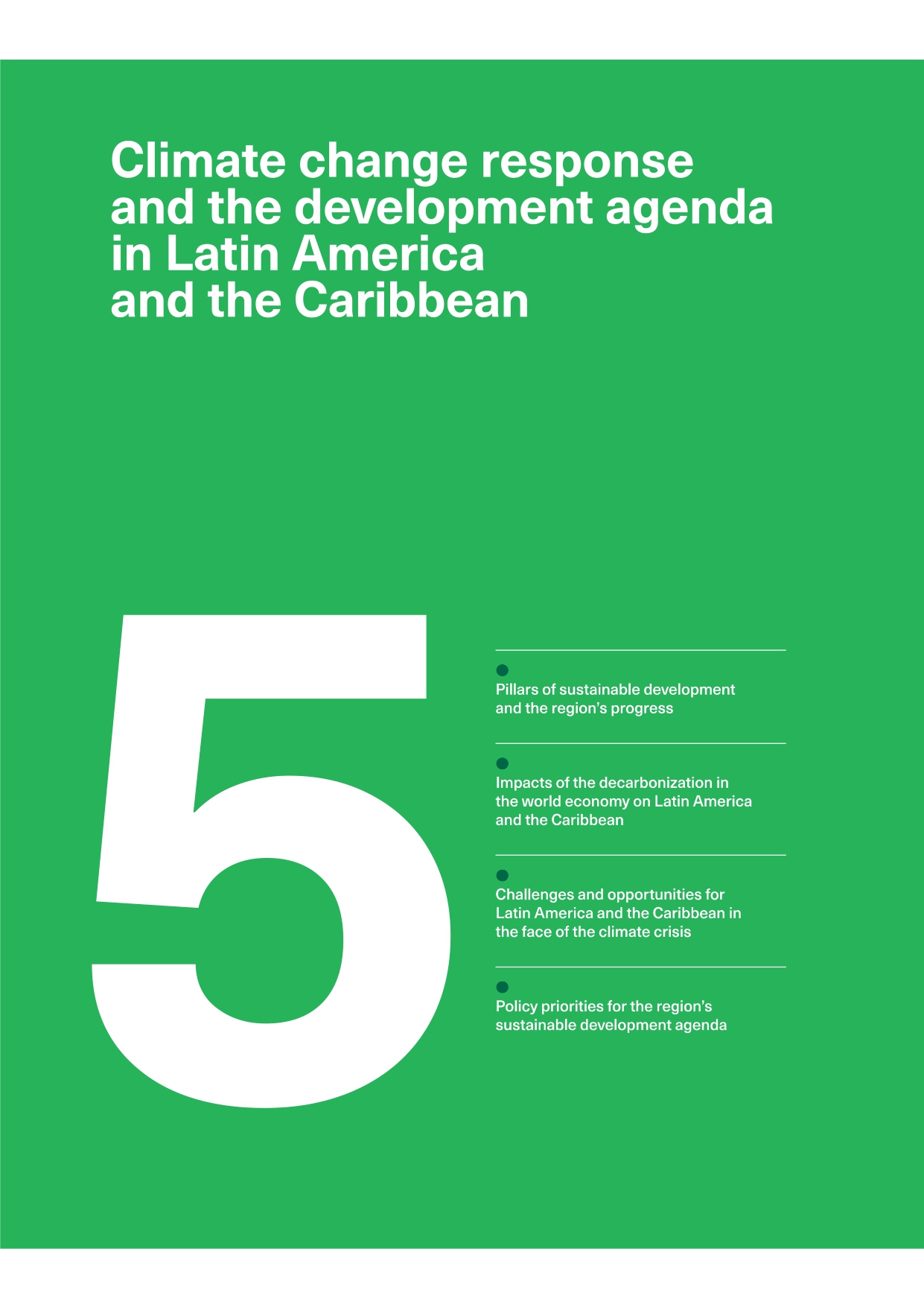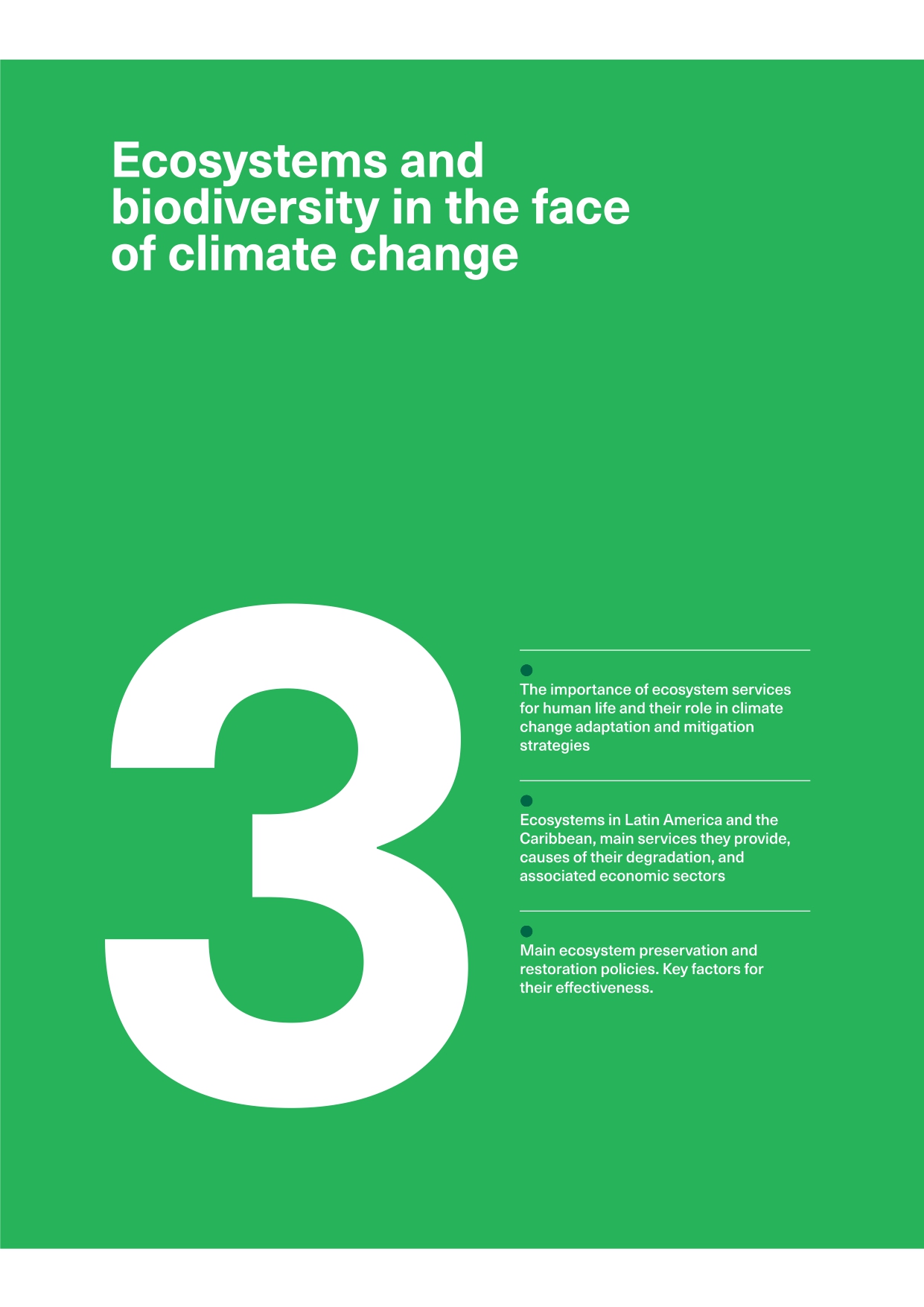RED 2023 - Chapter 5: Climate change response and the development agenda in Latin America and the Caribbean
Resumo
The preceding chapters shed light on the enormous challenges posed by climate change and biodiversity conservation to the world. Global greenhouse gas (GHG) emissions must be rapidly reduced if global warming is to be limited in line with the goals of the Paris Agreement. Moreover, adaptation to the current and expected impacts of climate change must be redoubled to avoid excessive costs to the well-being of the world’s population and to protect and restore natural capital, in order to restore the planet’s ecological balance.
Latin America and the Caribbean (LAC) is not exempt from these challenges; on the contrary, the region is among the most affected by climate change and least prepared to withstand its impacts, making the need to enhance the resilience of its economies even more urgent. Additionally, the region’s abundance of natural capital positions it as a key player in achieving global climate and conservation goals.
Assunto
País / Región
ISBN
978-980-422-306-8Data
2023Cite esta publicação
Item que pertence à coleção
Autor
Brassiolo, PabloEstrada, Ricardo
Schargrodsky, Ernesto
Items Relacionados
RED 2023 - Chapter 1: Climate change and biodiversity: From the physical basis to the economic perspective
Climate change and biodiversity loss are urgent global challenges that pose significant threats to human life. The latest evidence leaves no doubt that ...
RED 2023 - Chapter 3: Ecosystems and biodiversity in the face of climate change
The ecosystems provide vital services to human existence. These benefits, known as ecosystem services, encompass the provision of food, freshwater, ...
High-integrity Voluntary Carbon Markets in the Global South: options for Policymakers in Latin America and the Caribbean
Limiting global warming to 1.5°C, in line with the Paris Agreement, requires that global annual greenhouse gas (GHG) emissions be cut by 50 percent of ...






